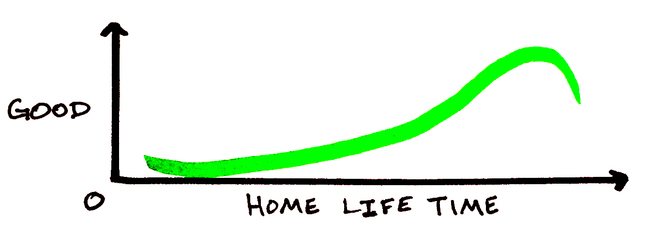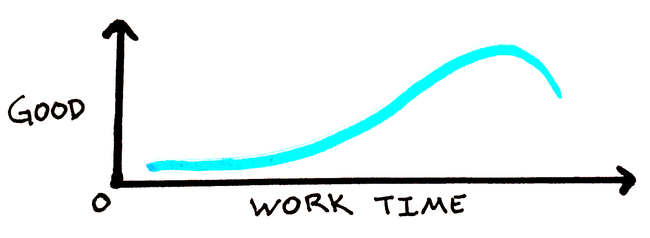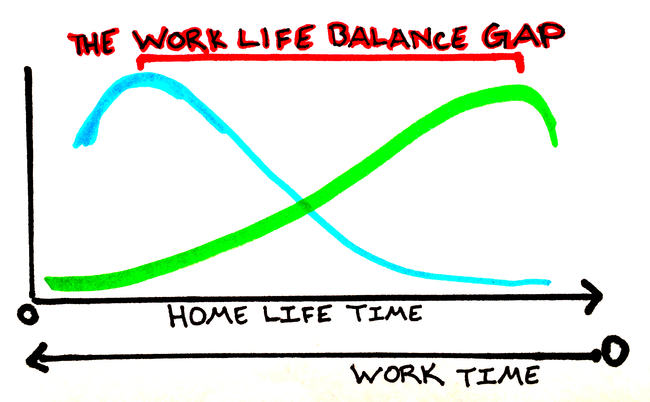The Secret to Work Life Balance
I don’t like most discussions around “Work Life Balance” because so much advice is just personal experience. The problem with giving advice via personal experience is that it doesn’t necessarily apply to everyone. This post is going to try to start from first principles. I want to show you why this is a hard problem.
Let’s start with your home life. This might mean your spouse, maybe your kids, maybe your pokémon collection. Whatever it is, it isn’t your work, but it is important to you.
You can let this part of your life suffer with neglect. This might mean you’re not meeting someone that might be your future husband or wife. It might mean you’re leaning too heavily on a spouse to take care of your kids.
You can spend more time, and this life will get better. You’re going to little league games. You’re reading more to your kids.
You can also spend too much time and get obsessed. Not working can cause a financial burden. You might lose yourself in taking care of others. Your fitness might suffer. It isn’t a hard rule, but you can spend too much time with almost anything.
Let’s graph this:

Ok, now what about your work? It follows the same pattern. You can spend so little time that you’re incompetent and get fired. You can spend more time and do better. You can get that promotion, your project can succeed.
You can also be unhealthy in your obsession with work. Your fitness or sanity suffer from the obsession. Maybe you’d be better at your job if you were more like a regular person.
The graph is similar:

The key is that time spent in one part of your life is gone. You can’t get it back. It would be easy to pick the peak in the graphs above, but what about this one that better represents reality:

This is why work life balance is hard. The Work Life Balance Gap™. You must choose to allocate your time in a way that is unlikely to be the best outcome for that part of your life. It would be EASY if there were a point that was the peak for both. Just do that and move on. But this is almost never the case.
You could get even more detailed here. What about balancing getting work done with learning new skills? What about balancing time with friends vs time with kids? Old friends vs making new friends?
Remember my warning about advice based on personal experience? Good.
So in my personal experience, I have three kids, a wonderful wife, and a startup. It’s actually my second startup. I got married and had kids relatively young, which is going to be unambiguously awesome later in life. I’ll be younger and better able to be a part of my kids’ lives after they leave the nest.
But would my first startup have IPOed if I didn’t have kids?
Would my kids end up happier if I had an easier job?
You need this kind of harsh introspection with a problem as difficult as work life balance. You need to think really hard about what you want and make a decision. The decision has a cost.
I try to think about the long term implications about my decisions. I also try to stay open to new possibilities and make changes as needed. I wouldn’t make as good decisions if I had some delusion that every part of my life can be optimized.
I meet a lot of people frustrated by work life balance. They feel like they are imbalanced and that they can be doing more at home or at work. This layer of frustration is caused by a delusion that there is some magic path to get it all. You can’t have it all, but at least you can feel more confident about your decisions and stop fretting.